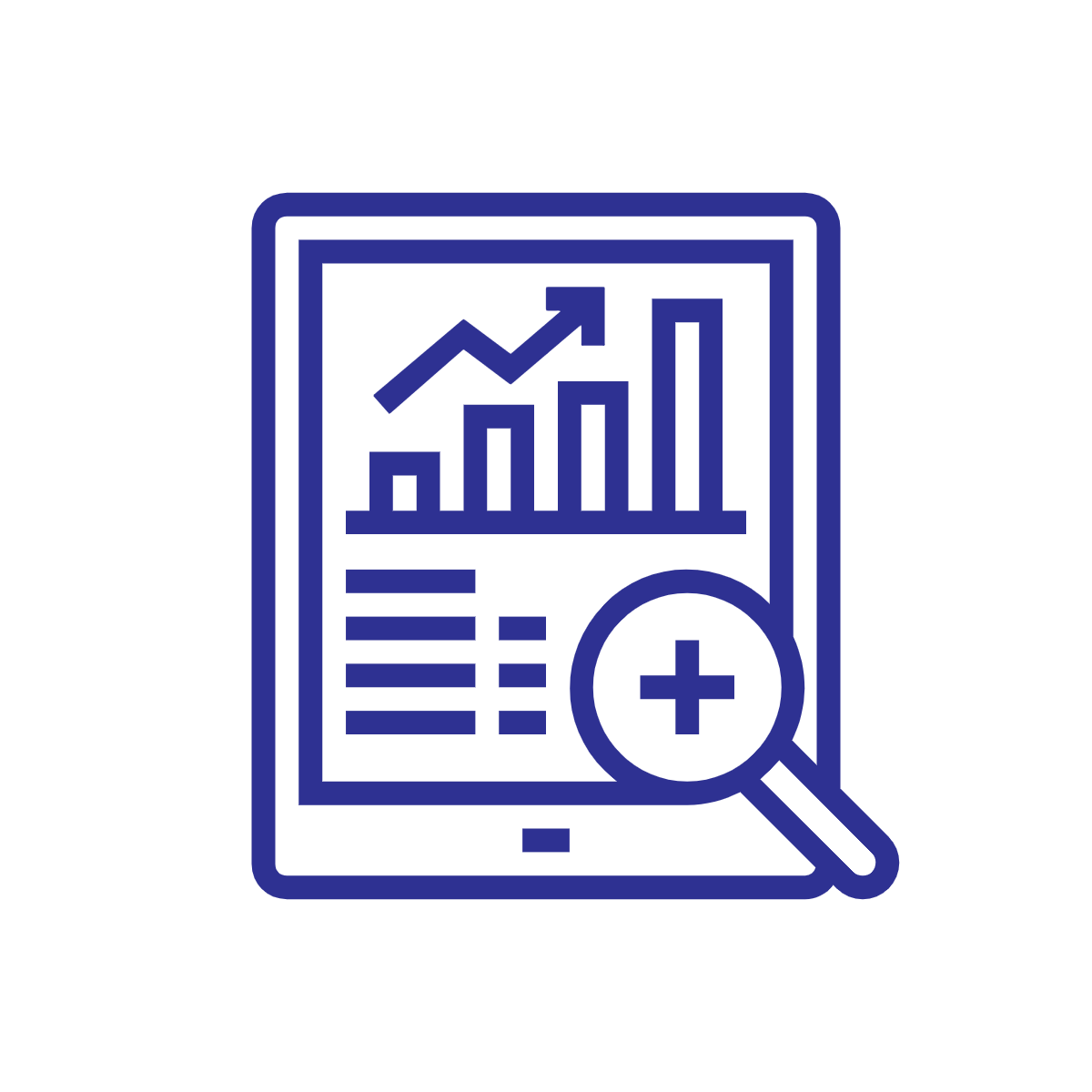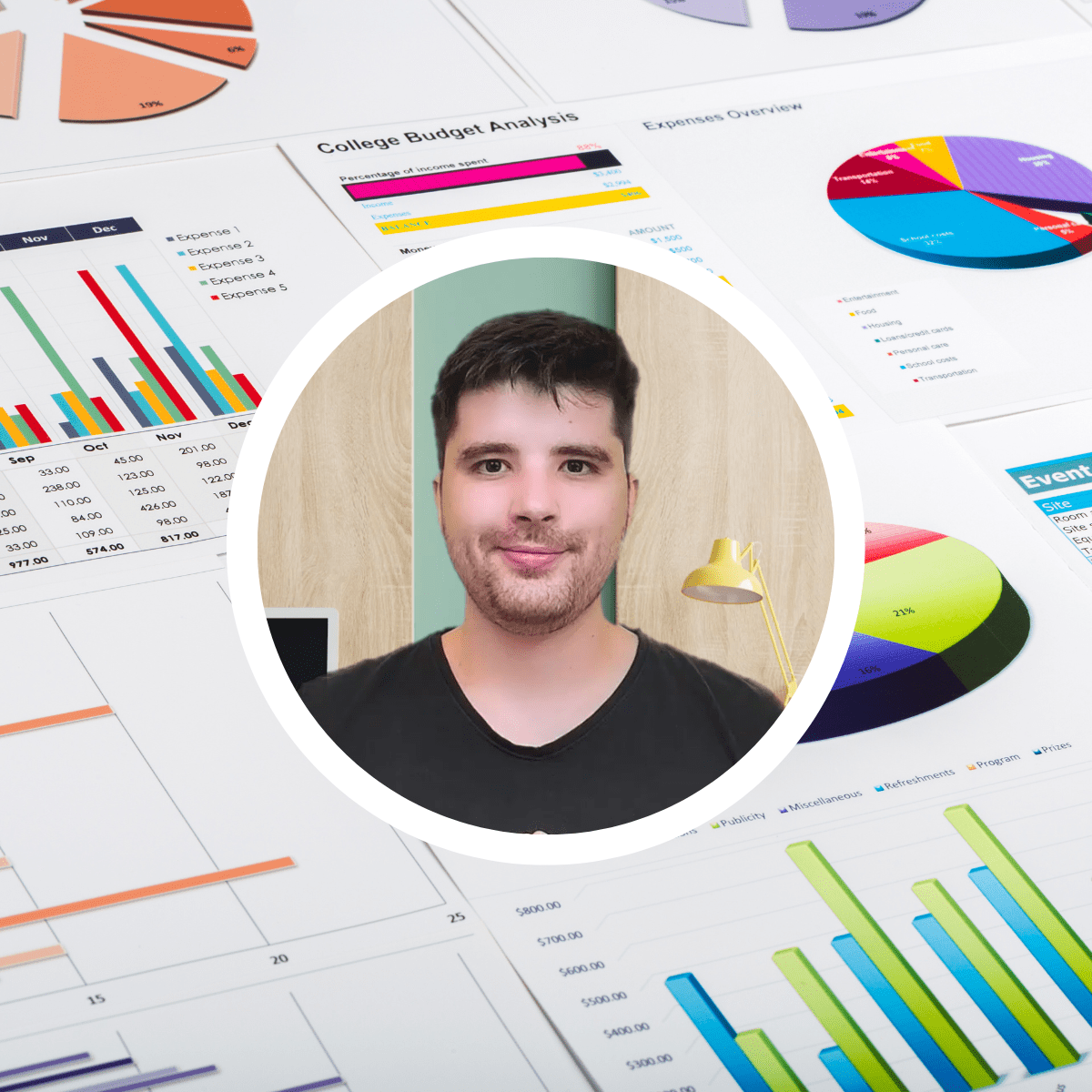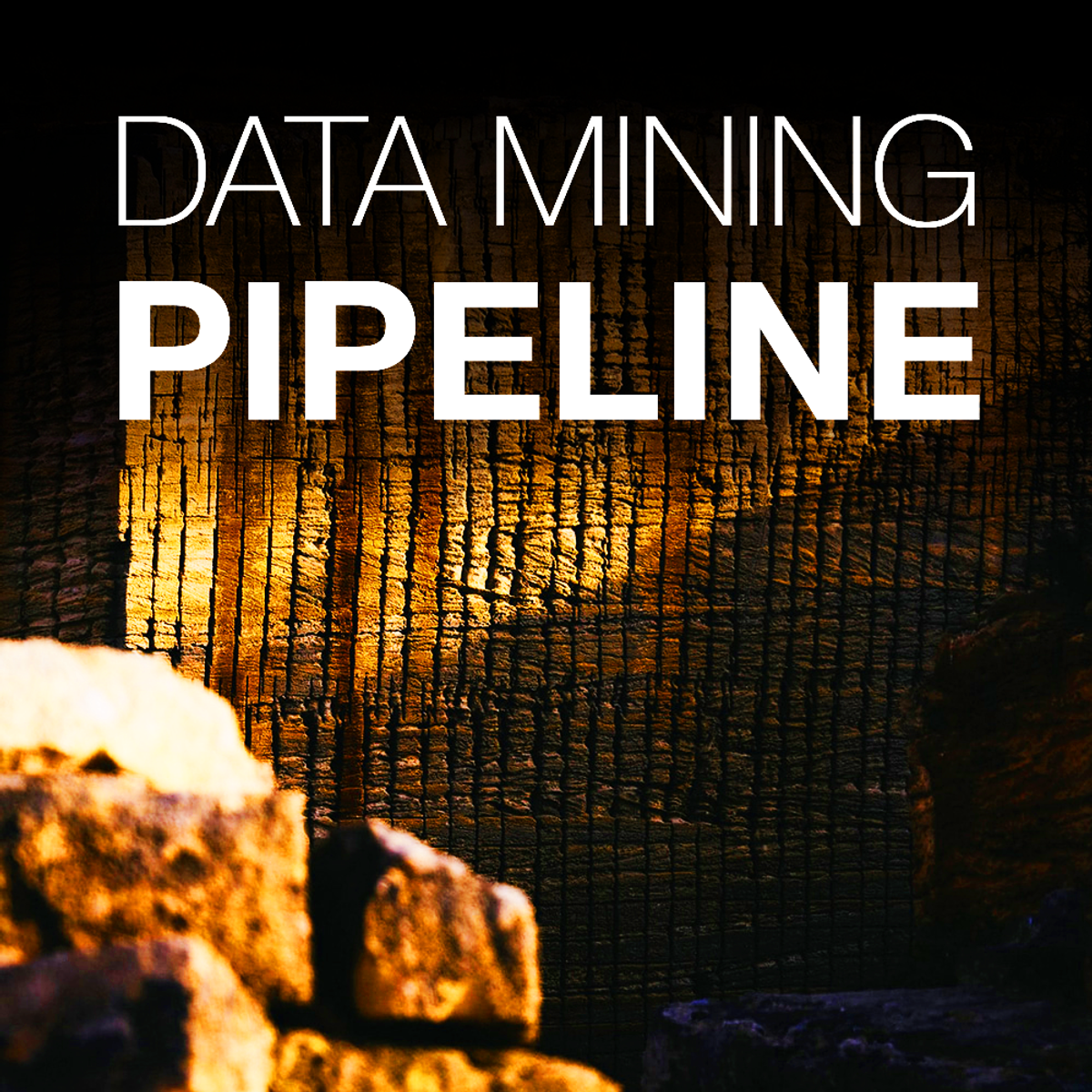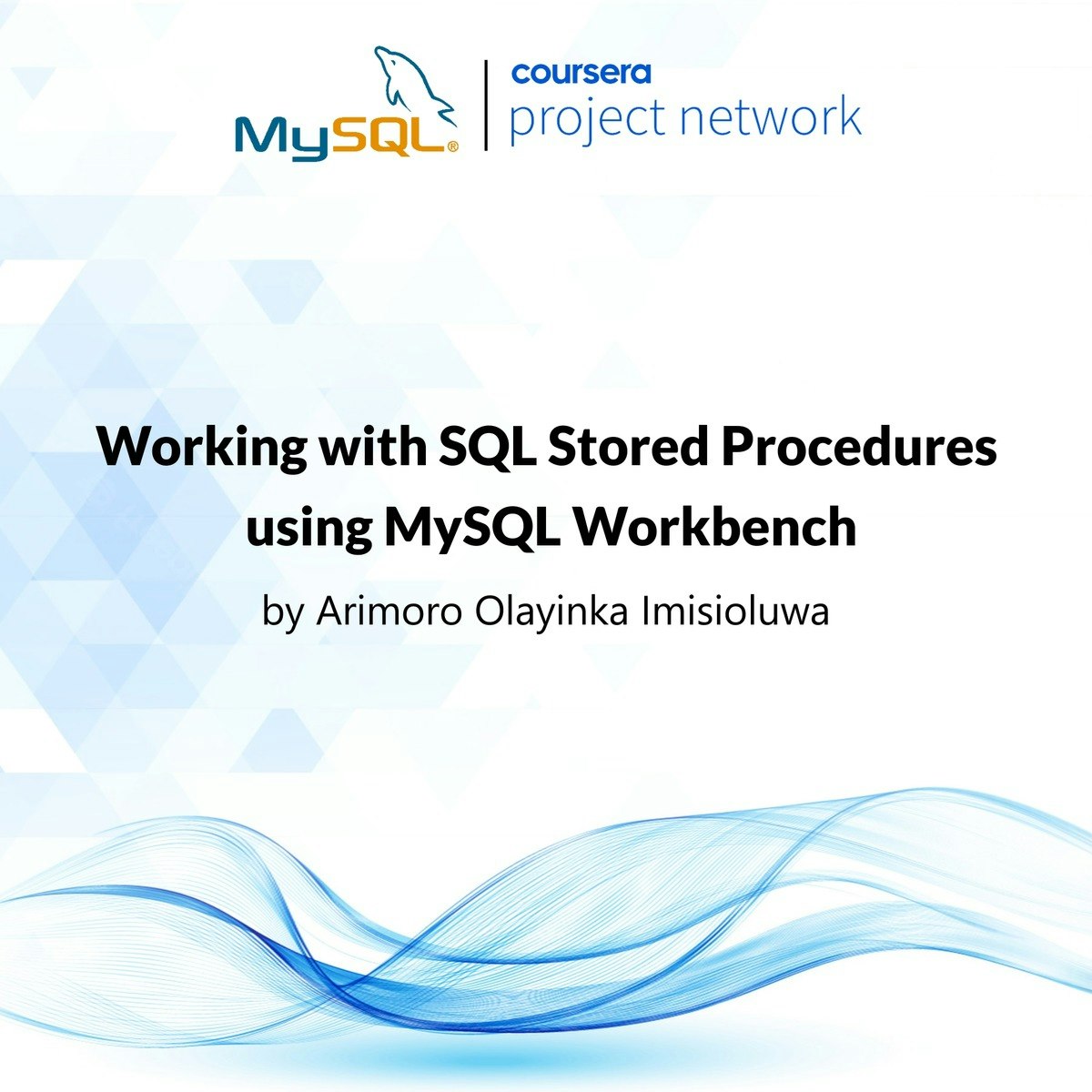Data Warehouse Analyst
Navigating the World of Data: A Comprehensive Guide to the Data Warehouse Analyst Career
A Data Warehouse Analyst plays a pivotal role in how organizations collect, store, manage, and utilize vast amounts of data. At a high level, these professionals are the architects and guardians of a company's data warehouse – a large, centralized repository of information. They ensure that data from various sources is accurately integrated, efficiently stored, and readily accessible for reporting, analysis, and ultimately, informed decision-making. Think of them as the librarians of an immense digital library, meticulously organizing information so that others can easily find the knowledge they seek.
Working as a Data Warehouse Analyst can be particularly engaging for individuals who enjoy solving complex puzzles and have a knack for understanding intricate systems. One exciting aspect is the direct impact their work has on business strategy; by providing clean, reliable data, they empower leaders to make critical choices with confidence. Furthermore, the field is constantly evolving with new technologies and methodologies, offering continuous learning opportunities and the chance to work with cutting-edge tools that shape the future of data management.
Understanding the Data Warehouse Analyst Role
The landscape of data-focused careers can seem complex, with various roles often having overlapping responsibilities. Understanding the specific niche of a Data Warehouse Analyst is crucial for anyone considering this path. It's a specialized role that bridges the gap between raw data and actionable business insights.
Distinguishing the Data Warehouse Analyst: Beyond Data Engineering and Business Intelligence
While a Data Warehouse Analyst works closely with data, their focus differs from that of a Data Engineer or a Business Intelligence (BI) Analyst. A Data Engineer is typically more focused on the infrastructure and pipelines for data flow – building and maintaining the systems that collect and transport data. They are the plumbers and architects of the data highways.
A Business Intelligence Analyst, on the other hand, primarily uses the data that has already been processed and stored in the data warehouse. They create reports, dashboards, and visualizations to answer specific business questions and identify trends. They are the interpreters and storytellers of the data.
The Data Warehouse Analyst sits strategically between these roles. They are deeply involved in designing the structure of the data warehouse itself, ensuring data quality, and optimizing how data is stored and retrieved. They define how data from disparate sources should be transformed and conformed to fit into the warehouse, making it usable for BI Analysts and other data consumers. They are the curators and organizers of the data repository.
For those looking to understand the broader data ecosystem and how these roles interact, exploring foundational concepts in data warehousing is an excellent starting point. These courses can provide a solid overview of the principles that underpin the work of a Data Warehouse Analyst.
Typical Team Structures and Reporting Lines
Data Warehouse Analysts often work within a broader data or IT department. The specific team structure can vary significantly depending on the size and nature of the organization. In larger companies, they might be part of a dedicated data warehousing team, reporting to a Data Warehouse Manager or a Director of Data Management.
This team might also include ETL (Extract, Transform, Load) developers, database administrators, and data modelers. In smaller organizations, the Data Warehouse Analyst might wear multiple hats, taking on responsibilities that could be distributed among several specialists in a larger setting. Their reporting line could be to an IT Manager or even directly to a Chief Technology Officer (CTO) or Chief Information Officer (CIO).
Collaboration is a key aspect of the role. Data Warehouse Analysts frequently interact with business stakeholders to understand their data requirements, with data engineers to coordinate data ingestion, and with BI analysts and data scientists who consume the data from the warehouse. Strong communication skills are therefore essential for navigating these diverse interactions effectively.
A Glimpse into the Day-to-Day Workflow
The daily activities of a Data Warehouse Analyst can be diverse. A typical day might involve monitoring the performance of existing data warehouse processes, troubleshooting any issues that arise with data loading or retrieval, and working on new development projects. This could include designing new tables or schemas to accommodate new data sources or business requirements.
Analysts spend considerable time writing and optimizing SQL queries to access and manipulate data. They might also be involved in developing and maintaining documentation for the data warehouse, ensuring that its structure and contents are well-understood by all users. Another part of their day could be dedicated to meetings with business users to gather requirements for new reports or analyses, or with other members of the data team to discuss ongoing projects and technical challenges.
Performance tuning is another common task. This involves identifying bottlenecks in data retrieval and implementing solutions to make queries run faster and more efficiently. Essentially, they ensure the data warehouse not only stores data correctly but also delivers it promptly when needed.
Core Responsibilities of a Data Warehouse Analyst
The responsibilities of a Data Warehouse Analyst are centered on ensuring the integrity, accessibility, and performance of an organization's data warehouse. These tasks are critical for enabling effective data-driven decision-making across the business.
Designing for Clarity: Data Modeling and Schema Design
A fundamental responsibility is data modeling and schema design. This involves creating the logical and physical design of the data warehouse. The analyst determines how data from various source systems will be structured, organized, and related within the warehouse. This includes defining tables, columns, data types, and relationships between different data entities. A popular approach is dimensional modeling, which organizes data into "facts" (measurable business events) and "dimensions" (the context surrounding those events).
Effective schema design is crucial for both performance and usability. A well-designed schema makes it easier for users to understand the data and for queries to run efficiently. The analyst must understand business requirements thoroughly to create models that accurately reflect business processes and support analytical needs. This often involves techniques like identifying slowly changing dimensions to accurately track historical changes in data.
Foundational books on data warehousing often dedicate significant portions to the art and science of data modeling. These texts can provide invaluable insights into best practices and established methodologies.
Ensuring Smooth Data Flow: ETL Pipeline Oversight
Data Warehouse Analysts are heavily involved in the Extract, Transform, Load (ETL) processes. While dedicated ETL developers might build the pipelines, the analyst often oversees these processes, ensuring they function correctly and efficiently. ETL is the engine that populates the data warehouse: data is extracted from various operational systems, transformed (cleaned, standardized, aggregated, etc.) to fit the warehouse's schema, and then loaded into the warehouse.
The analyst's role here includes defining transformation rules, monitoring ETL job execution, troubleshooting failures, and optimizing performance. They work to ensure data quality and consistency as it moves through the pipeline. For example, they might define rules to handle missing data, resolve inconsistencies between different source systems, or derive new data elements needed for analysis.
Understanding how to create and manage these data flows is essential. Some online courses focus specifically on building these pipelines, sometimes using cloud-based tools.
Speed and Efficiency: Mastering Query Optimization Techniques
Once data is in the warehouse, it needs to be retrieved efficiently. Data Warehouse Analysts are responsible for query optimization, which involves ensuring that requests for data are processed as quickly as possible. This can involve a variety of techniques, such as rewriting inefficient SQL queries, creating and maintaining indexes on database tables, and designing materialized views (pre-calculated summaries of data).
They also analyze query execution plans to identify performance bottlenecks and work with database administrators to tune the underlying database system. The goal is to minimize response times for analytical queries, which can often be complex and involve large volumes of data. Poor query performance can frustrate users and hinder the adoption of data-driven practices, making this a critical responsibility.
Metrics used to evaluate performance in this area could include average query response time, query throughput, and the percentage of queries meeting service level agreements (SLAs). Analysts might also track the success rate of ETL jobs and the time taken to resolve data loading issues.
Upholding Standards: Data Governance Implementation
Data governance involves establishing and enforcing policies and procedures for managing an organization's data assets. Data Warehouse Analysts play a key role in implementing data governance practices within the data warehouse environment. This includes ensuring data quality, data security, and compliance with data privacy regulations (like GDPR or CCPA).
They might be involved in defining data quality rules, implementing data validation checks, and establishing processes for data cleansing and remediation. They also work to ensure that appropriate security measures are in place to protect sensitive data, such as controlling access to the data warehouse and auditing data usage. Documenting data definitions, lineage, and business rules is another important aspect of data governance that falls under their purview.
Key performance indicators (KPIs) related to data governance might include data accuracy rates, the number of data quality issues identified and resolved, compliance audit pass rates, and the percentage of critical data elements with documented definitions and ownership.
Essential Skills and Qualifications for Success
Aspiring Data Warehouse Analysts need a blend of technical prowess, analytical thinking, and strong interpersonal skills. This combination allows them to effectively design, manage, and optimize data warehouses while also collaborating with various stakeholders.
The Technical Toolkit: SQL, Dimensional Modeling, and Cloud Platforms
A deep understanding of SQL (Structured Query Language) is non-negotiable. This is the primary language used to interact with relational databases, and analysts use it daily for querying, manipulating, and defining data. Proficiency extends beyond basic `SELECT` statements to include complex joins, subqueries, window functions, and stored procedures.
Knowledge of dimensional modeling principles, as pioneered by figures like Ralph Kimball, is also essential. This involves designing data schemas (like star schemas or snowflake schemas) that are optimized for analytical querying and reporting. Understanding concepts like facts, dimensions, and slowly changing dimensions is critical for building effective data warehouses.
Increasingly, familiarity with cloud platforms such as Amazon Web Services (AWS), Microsoft Azure, or Google Cloud Platform (GCP) is required. Many organizations are migrating their data warehouses to the cloud or building new ones there to take advantage of scalability, flexibility, and cost-effectiveness. Experience with cloud-based data warehousing services like Amazon Redshift, Azure Synapse Analytics, or Google BigQuery is highly valued.
Many online courses offer pathways to develop these technical competencies, from SQL fundamentals to advanced data warehousing on specific cloud platforms.
Several books also provide deep dives into specific database technologies and data warehousing principles.
The Analytical Mindset: Requirements Gathering and Gap Analysis
Beyond technical skills, Data Warehouse Analysts must possess strong analytical abilities. A key part of their role involves requirements gathering – working closely with business users, department heads, and other stakeholders to understand their data needs. This means being able to ask the right questions, listen actively, and translate often vague business requests into concrete technical specifications for the data warehouse.
Gap analysis is another crucial analytical skill. This involves comparing the current state of data availability and quality with the desired future state as defined by business requirements. Analysts identify discrepancies, pinpoint missing data or functionality, and propose solutions to bridge these gaps. This requires a methodical approach to problem-solving and the ability to see the bigger picture of how data supports business objectives.
The ability to think critically about data, identify patterns, and troubleshoot issues is paramount. Analysts often act as detectives, tracing data lineage, diagnosing problems in ETL processes, and figuring out why a query isn't performing as expected.
The Human Element: Stakeholder Communication and Documentation Practices
Soft skills are just as important as technical and analytical ones. Data Warehouse Analysts must be excellent communicators. They need to explain complex technical concepts to non-technical audiences, present their findings and recommendations clearly, and collaborate effectively with team members from diverse backgrounds.
Effective stakeholder communication involves managing expectations, providing regular updates on project progress, and being able to negotiate priorities when faced with conflicting demands. Building strong working relationships with business users is essential for ensuring that the data warehouse truly meets their needs.
Meticulous documentation practices are also vital. Data warehouses are complex systems, and comprehensive documentation is necessary for maintenance, troubleshooting, and onboarding new team members. This includes documenting data models, ETL processes, data definitions, business rules, and security procedures. Clear and up-to-date documentation saves time, reduces errors, and ensures the long-term sustainability of the data warehouse.
Navigating the Toolkit: Essential Tools and Technologies
A Data Warehouse Analyst works with a diverse array of tools and technologies to build, maintain, and optimize data warehousing solutions. Understanding the landscape of these tools, from database systems to integration platforms, is crucial for success in the role.
The Core: On-Premises vs. Cloud Warehouse Solutions
Historically, data warehouses were predominantly hosted on-premises, meaning the physical servers and infrastructure were located within the organization's own data centers. Common on-premise database technologies include Oracle, Microsoft SQL Server, Teradata, and IBM Db2. These systems offer a high degree of control but can be expensive to set up and maintain, and scaling them can be a significant undertaking.
In recent years, cloud-based data warehouse solutions have gained immense popularity. Platforms like Amazon Redshift, Google BigQuery, Azure Synapse Analytics, and Snowflake offer scalability, elasticity, and often a pay-as-you-go pricing model. This makes them attractive for organizations of all sizes. Data Warehouse Analysts increasingly need skills in one or more of these cloud platforms, including provisioning, managing, and optimizing cloud data warehouses.
Courses focusing on specific cloud vendor offerings can provide hands-on experience with these modern solutions.
Key books often cover architectural principles applicable to both on-premise and cloud environments, as well as specifics for certain technologies.
Bridging Systems: The Data Integration Tools Landscape
Data integration tools are essential for ETL (Extract, Transform, Load) processes, which move data from source systems into the data warehouse. These tools provide frameworks and connectors to automate the extraction of data from various databases, applications, and files. They also offer capabilities for transforming data – cleaning, validating, standardizing, and restructuring it – before loading it into the target warehouse.
Popular data integration tools include Informatica PowerCenter, Talend, IBM InfoSphere DataStage, Microsoft SQL Server Integration Services (SSIS), and cloud-based services like AWS Glue, Azure Data Factory, and Google Cloud Data Fusion. Analysts may be involved in designing ETL workflows using these tools, configuring them, monitoring their execution, and troubleshooting issues. Some roles may require scripting skills in languages like Python for custom ETL development.
Understanding the capabilities of different data integration tools helps analysts choose the right solutions for their organization's needs and effectively manage the flow of data into the warehouse.
Maintaining Order: Version Control and CI/CD in Warehouse Environments
As data warehouse environments become more complex and development becomes more collaborative, practices from software engineering are increasingly being adopted. Version control systems, such as Git, are used to manage changes to data warehouse schemas, ETL scripts, SQL queries, and other code artifacts. This allows teams to track revisions, revert to previous versions if necessary, and collaborate more effectively on development projects.
Continuous Integration and Continuous Delivery/Deployment (CI/CD) practices are also gaining traction. CI/CD pipelines automate the process of testing and deploying changes to the data warehouse environment. This can help to improve the quality and reliability of deployments, reduce manual effort, and enable faster delivery of new features and enhancements. While not yet universal, familiarity with these concepts is becoming a valuable asset for Data Warehouse Analysts.
These practices help ensure that the data warehouse evolves in a controlled and systematic manner, minimizing risks and maximizing the efficiency of the development lifecycle.
Charting Your Course: Career Progression Pathways
A career as a Data Warehouse Analyst offers various avenues for growth and specialization. Understanding these pathways can help individuals plan their career development, whether they are just starting out or looking to advance to more senior roles.
Laying the Foundation: Entry-Level Prerequisites
Breaking into a Data Warehouse Analyst role typically requires a bachelor's degree in a relevant field such as Computer Science, Information Systems, Data Science, or a related quantitative discipline. Some individuals may also enter the field with a strong background in business complemented by significant technical coursework or certifications.
Often, prior experience as a Data Analyst or in a database administration role can serve as a valuable stepping stone. Such roles provide foundational experience in working with data, SQL, and database systems, which are directly transferable. Internships or co-op programs that offer hands-on experience with data warehousing projects can also significantly enhance a candidate's profile.
For those transitioning from other fields, building a strong portfolio of projects, possibly through online courses or personal initiatives, can demonstrate practical skills and a commitment to learning the necessary technologies. A proactive approach to acquiring foundational knowledge in database management and SQL is key.
Consider these introductory courses to build a strong base in relational databases and data manipulation, which are crucial for any aspiring Data Warehouse Analyst.
Deepening Expertise: Mid-Career Specialization Options
As Data Warehouse Analysts gain experience, they often have opportunities to specialize. One common path is to become a Data Warehouse Architect, focusing more on the high-level design and strategy of data warehousing solutions across the enterprise. This involves making critical decisions about technology choices, data governance frameworks, and long-term scalability.
Another specialization is in ETL/Data Integration development, becoming an expert in designing and building complex data pipelines using specialized tools. Others might focus on performance tuning and optimization, becoming go-to experts for resolving complex database performance issues. Specialization in specific cloud platforms (AWS, Azure, GCP) is also increasingly common, as organizations demand deep expertise in these environments.
Some analysts may also choose to delve deeper into specific industries, such as finance, healthcare, or retail, developing domain expertise that allows them to better understand and address the unique data challenges of that sector. This combination of technical skill and industry knowledge can be highly valuable.
Books that delve into advanced topics or specific architectural patterns can support this stage of career development.
Reaching New Heights: Leadership Trajectories
For experienced Data Warehouse Analysts, leadership roles present a common progression path. This can take two primary forms: technical leadership or people management. A technical leadership track might lead to roles like Principal Data Warehouse Architect or Lead Data Engineer, where the individual remains deeply involved in technical decision-making and mentoring other technical staff, setting the technical vision for data warehousing initiatives.
A people management track could involve becoming a Data Warehouse Manager, Director of Data Management, or even progressing to higher executive positions like Chief Data Officer (CDO). These roles involve overseeing teams, managing budgets, setting strategic direction for data initiatives, and liaising with senior business leadership. Strong communication, strategic thinking, and people management skills become increasingly important in these roles.
The choice between these paths often depends on individual preferences and strengths – whether one derives more satisfaction from deep technical problem-solving or from leading and developing teams and shaping broader organizational strategy. Both paths offer significant opportunities for impact and continued professional growth.
Formal Education: Paving the Way to a Data Career
A solid educational foundation is often the first step towards a career as a Data Warehouse Analyst. While practical experience and self-learning play significant roles, formal education provides the structured knowledge and credentials that many employers seek.
Undergraduate Degrees: Laying the Groundwork
Most entry-level positions for Data Warehouse Analysts require at least a bachelor's degree. Common and highly relevant undergraduate majors include Computer Science, Management Information Systems (MIS), Software Engineering, and Data Science. These programs typically offer coursework in database management, programming, data structures, algorithms, and systems analysis – all of which are pertinent to data warehousing.
Degrees in mathematics, statistics, or even business with a strong quantitative or technical minor can also provide a suitable background. The key is to acquire a strong understanding of data principles, analytical thinking, and some programming exposure. Elective courses focusing on database design, SQL, and business intelligence can be particularly beneficial. Engaging in university projects that involve data analysis or database creation can also provide valuable early experience.
Students should also look for opportunities to gain practical experience through internships, which can provide a crucial bridge between academic learning and real-world application. Exploring OpenCourser's Computer Science or Data Science categories can reveal many foundational courses that align with these degree paths.
Graduate Studies: Deepening Specialization
While not always a strict requirement for entry-level roles, a master's degree can be advantageous, particularly for those seeking more specialized positions or faster career advancement. Graduate programs in Data Science, Business Analytics, Information Systems, or Computer Science with a concentration in data engineering or database management can provide deeper knowledge and advanced skills.
These programs often delve into more advanced topics such as big data technologies, advanced data modeling techniques, data mining, machine learning, and data governance strategies. A master's degree can also be beneficial for individuals transitioning from less technical fields, providing an intensive and structured path to acquire the necessary expertise. Furthermore, many graduate programs emphasize research and project work, which can help in building a strong portfolio.
Some universities offer specialized tracks or certificates in data warehousing or data engineering as part of their graduate offerings. These can be excellent options for those with a clear career focus in this area.
For advanced concepts, consider exploring books that cover complex data warehousing implementations and designs.
Certifications and Industry Partnerships: Validating Skills
Industry certifications can be a valuable supplement to formal education, helping to validate specific technical skills and knowledge. Several vendors offer certifications related to their database and cloud data warehousing platforms, such as Microsoft Certified: Azure Data Engineer Associate, Google Professional Data Engineer, or AWS Certified Data Analytics - Specialty.
There are also vendor-neutral certifications that cover broader data management principles. While certifications alone may not guarantee a job, they can make a resume stand out and demonstrate a commitment to continuous learning and professional development. Some employers may even prefer or require certain certifications for specific roles.
Universities sometimes partner with industry leaders to offer specialized training or integrate certification preparation into their curricula. These partnerships can provide students with access to cutting-edge tools and real-world case studies, further enhancing their preparedness for a career as a Data Warehouse Analyst. Staying updated on relevant certifications can be an ongoing part of professional development in this rapidly evolving field.
Courses that prepare for specific certifications or teach platform-specific skills are widely available online.
Online Learning and Skill Development: Your Path to Mastery
For those aspiring to become Data Warehouse Analysts, especially career changers or individuals looking to upskill, online learning offers a flexible and accessible pathway. The wealth of resources available allows learners to acquire new skills, experiment with technologies, and build a compelling portfolio at their own pace.
Hands-On Experience: Project-Based Learning Strategies
Theoretical knowledge is important, but practical application is what truly solidifies skills and impresses potential employers. Project-based learning is an excellent strategy for Data Warehouse Analysts in training. This involves undertaking projects that simulate real-world scenarios, such as designing and building a small data warehouse for a fictional business, developing ETL processes to integrate disparate datasets, or optimizing queries for a sample database.
Many online courses incorporate hands-on labs and projects. For instance, learners might create reporting tables using SQL joins, or even build a complete data warehouse using cloud services. These projects not only reinforce concepts but also provide tangible evidence of your abilities. Aim to work on projects that cover different aspects of the data warehousing lifecycle, from data modeling to ETL development and query optimization.
OpenCourser is an excellent resource for finding such courses. You can browse through Data Science courses or search for specific skills like "SQL projects" or "ETL development." The platform allows you to compare course syllabi and reviews to find options that best fit your learning goals.
These courses offer opportunities for hands-on practice, which is invaluable for skill development.
Exploration and Innovation: Experimenting with Open-Source Tools
The data warehousing landscape includes many powerful open-source tools. Experimenting with these tools can be a cost-effective way to gain practical experience and broaden your skillset. For example, you could explore open-source database systems like PostgreSQL or MySQL, ETL tools like Apache NiFi or Talend Open Studio, or business intelligence platforms like Apache Superset.
Setting up a personal lab environment using virtual machines or Docker containers can provide a sandbox for experimentation. You can try building data pipelines, designing schemas, and running analytical queries using these tools. This hands-on experience not only builds technical proficiency but also fosters a deeper understanding of how different components of a data warehousing solution fit together.
Many online communities and forums are dedicated to these open-source tools, offering support and resources for learners. Engaging with these communities can also be a valuable learning experience.
Showcasing Your Abilities: Portfolio Development Techniques
A well-crafted portfolio is essential for demonstrating your skills to potential employers, especially if you are new to the field or transitioning from a different career. Your portfolio should showcase the projects you have completed, highlighting the problems you solved, the technologies you used, and the outcomes you achieved.
For each project, provide a clear description of the objectives, your role, the tools and techniques employed, and any significant results or insights. Include code samples (e.g., SQL scripts, ETL configurations) on platforms like GitHub. If possible, create visualizations or dashboards based on your project data to demonstrate your ability to derive value from the warehouse.
Your portfolio can be a personal website, a GitHub repository, or even a collection of detailed project summaries. The key is to make it accessible and easy for recruiters and hiring managers to understand your capabilities. Remember to also highlight any relevant online courses you've completed; OpenCourser's "Save to List" feature can help you curate and share lists of courses you've taken or plan to take, which can be a great addition to your learning journey narrative when shared via your profile settings.
Books often provide case studies or examples that can inspire portfolio projects.
The Evolving Landscape: Industry Trends and Future Outlook
The field of data warehousing is dynamic, constantly influenced by technological advancements and evolving business needs. Staying aware of these trends is crucial for Data Warehouse Analysts to remain relevant and effective in their roles. The U.S. Bureau of Labor Statistics projects growth for database administrators and architects, a closely related field, indicating a continued demand for data management skills. For specific outlooks on "Data Warehouse Analyst," more targeted industry reports may offer insights.
The Need for Speed: Impact of Real-Time Analytics Adoption
One of the most significant trends is the increasing demand for real-time or near real-time analytics. Traditionally, data warehouses operated on batch processing, where data was updated periodically (e.g., daily or hourly). However, businesses today require faster insights to react quickly to changing market conditions, customer behavior, and operational events. This is driving the adoption of technologies and architectures that support streaming data ingestion and continuous processing.
Data Warehouse Analysts are increasingly involved in designing systems that can handle high-velocity data streams from sources like IoT devices, web applications, and social media. This may involve working with stream processing platforms like Apache Kafka or cloud-native streaming services. The ability to integrate and analyze streaming data alongside historical data in the warehouse is becoming a key capability.
This shift requires analysts to understand concepts like event-driven architectures and lambda/kappa architectures, which are designed to accommodate both batch and real-time data processing. According to a report by McKinsey & Company, the ability to harness data effectively, including real-time insights, will be a major differentiator for successful enterprises.
Smarter Systems: Automation in Metadata Management
Metadata, or "data about data," is crucial for understanding, managing, and governing the information stored in a data warehouse. Effective metadata management helps users discover relevant data, understand its lineage and quality, and interpret it correctly. However, manually curating and maintaining metadata can be a labor-intensive process, especially in large and complex data environments.
There is a growing trend towards automating metadata management processes. This involves using AI and machine learning techniques to automatically discover, classify, and catalog metadata. Automated tools can help to identify data relationships, track data lineage, and even suggest data quality rules. This frees up Data Warehouse Analysts from routine metadata tasks, allowing them to focus on more strategic activities.
Analysts will need to become familiar with these automated metadata management tools and understand how to leverage them to improve data governance and discovery within the warehouse. The goal is to create a more intelligent and self-documenting data environment.
Flexible Futures: Emerging Hybrid and Multi-Cloud Architectures
As organizations increasingly adopt cloud services, hybrid and multi-cloud data warehousing architectures are becoming more common. A hybrid cloud approach involves integrating on-premises data warehouses with cloud-based services, allowing organizations to leverage existing investments while taking advantage of cloud capabilities. A multi-cloud strategy involves using data warehousing services from multiple cloud providers to avoid vendor lock-in or to utilize best-of-breed services for different workloads.
These distributed architectures present new challenges and opportunities for Data Warehouse Analysts. They need to understand how to design and manage data warehouses that span multiple environments, ensuring data consistency, security, and efficient data movement across different platforms. This requires skills in data integration, network configuration, and security management in hybrid and multi-cloud contexts.
The ability to work with diverse data storage solutions and to orchestrate data flows across different cloud providers will be increasingly important. Consulting firms like Gartner often publish research on these evolving architectural patterns and their implications for data management professionals.
Navigating Hurdles: Challenges and Ethical Considerations
While the role of a Data Warehouse Analyst is crucial and often rewarding, it comes with its own set of challenges and important ethical responsibilities. Successfully navigating these aspects is key to a sustainable and responsible career in data warehousing.
Guarding Secrets: Data Privacy Regulation Compliance
One of the foremost challenges is ensuring compliance with ever-evolving data privacy regulations, such as the General Data Protection Regulation (GDPR) in Europe, the California Consumer Privacy Act (CCPA), and others worldwide. These regulations impose strict rules on how personal data can be collected, processed, stored, and secured. Data warehouses often contain vast amounts of sensitive customer and business information, making compliance a critical concern.
Data Warehouse Analysts must be knowledgeable about these regulations and play a role in implementing technical and organizational measures to protect data privacy. This includes techniques like data masking, pseudonymization, anonymization, and implementing robust access controls and audit trails. Failure to comply can result in significant financial penalties and reputational damage for the organization.
Staying updated on new and revised privacy laws is an ongoing responsibility. Ethical considerations also come into play, as analysts must ensure that data is used responsibly and in ways that respect individual privacy, even beyond strict legal requirements.
Bridging Eras: Legacy System Modernization Pressures
Many established organizations rely on legacy systems that are decades old. These systems often house critical business data but can be difficult to integrate with modern data warehousing technologies. Data Warehouse Analysts frequently face the challenge of extracting data from these aging systems, transforming it, and loading it into contemporary data warehouses.
Modernizing legacy systems or migrating data from them can be complex, risky, and time-consuming projects. Analysts need to develop strategies for dealing with outdated data formats, inconsistent data quality, and a lack of documentation. They may also encounter resistance to change from stakeholders accustomed to the old systems.
This pressure to modernize is driven by the need for better analytics, improved operational efficiency, and the desire to leverage new technologies like cloud computing and AI. Analysts with skills in data migration and an understanding of both legacy and modern systems are highly valuable in these contexts.
Balancing Budgets: Cost Optimization in Cloud Environments
While cloud data warehousing offers significant benefits in terms of scalability and flexibility, it also introduces new challenges related to cost management. Cloud services are typically billed on a pay-as-you-go basis, and costs can escalate quickly if resources are not managed effectively. Data Warehouse Analysts are often involved in efforts to optimize cloud spending for data storage, data processing (ETL), and query execution.
This requires a good understanding of cloud pricing models, the ability to monitor resource consumption, and skills in implementing cost-saving measures. Techniques might include choosing appropriate storage tiers, optimizing data partitioning and compression, scheduling workloads to take advantage of lower-cost periods, and right-sizing compute resources. Tools provided by cloud vendors for cost management and analysis become essential in this regard.
The challenge lies in balancing performance and functionality with cost-effectiveness. Analysts must ensure that the data warehouse meets business requirements without incurring unnecessary expenses, a task that requires continuous monitoring and adjustment. Resources from firms like Forrester often discuss strategies for cloud cost optimization and governance.
Frequently Asked Questions (FAQs) about the Data Warehouse Analyst Career
Embarking on or transitioning into a career as a Data Warehouse Analyst often brings up many questions. Here are answers to some of the most common queries to help you gain clarity and make informed decisions about this career path.
What is the typical salary range and how does it vary by location?
Salary expectations for Data Warehouse Analysts can vary significantly based on factors such as years of experience, level of expertise, the specific industry, company size, and geographic location. Entry-level positions will naturally command lower salaries than senior or architect-level roles. Generally, this is a well-compensated field due to the specialized skills required.
Geographic location plays a major role. Metropolitan areas with a high demand for tech talent, particularly major tech hubs, tend to offer higher salaries to compensate for a higher cost of living and greater competition for skilled professionals. Conversely, salaries might be lower in smaller cities or regions with less demand.
To get a more precise idea, it's advisable to research salary data from reputable sources like the U.S. Bureau of Labor Statistics (for related roles like Database Administrators and Architects), or salary aggregators that provide location-specific and experience-level data. Keep in mind that these are estimates, and actual offers will depend on the specifics of the role and your qualifications.
How can one transition from a Database Administration (DBA) role?
Transitioning from a Database Administrator (DBA) role to a Data Warehouse Analyst position is a common and often smooth career progression. DBAs already possess many foundational skills crucial for data warehousing, including strong SQL knowledge, experience with database management systems, and an understanding of data structures and performance tuning.
To make the transition, a DBA should focus on acquiring skills more specific to data warehousing. This includes learning about dimensional modeling (star schemas, snowflake schemas), ETL processes and tools, data quality management, and business intelligence concepts. Gaining experience with specific data warehousing platforms (e.g., Amazon Redshift, Google BigQuery, Azure Synapse) is also highly beneficial.
Consider taking online courses focused on data warehouse design, ETL development, and BI fundamentals. Working on personal projects to build a small data warehouse or developing ETL pipelines can help solidify these new skills and provide talking points for interviews. Emphasize your existing database expertise and highlight your new data warehousing knowledge during your job search. OpenCourser's Learner's Guide offers tips on how to structure your learning and add new skills to your resume.
This course could be a good starting point for DBAs looking to understand broader data warehousing concepts.
Is remote work feasible for Data Warehouse Analysts?
Yes, remote work is quite feasible and increasingly common for Data Warehouse Analysts. The nature of the work, which is primarily computer-based and involves interacting with digital systems, lends itself well to remote arrangements. Many tasks, such as designing schemas, writing SQL queries, developing ETL processes, and monitoring warehouse performance, can be done effectively from any location with a stable internet connection.
The COVID-19 pandemic accelerated the adoption of remote work across many industries, including tech. Many companies have now embraced remote or hybrid work models permanently. However, the availability of remote positions can still depend on the company's culture, security policies (especially when dealing with sensitive data), and the specific requirements of the team or project.
When searching for remote roles, look for companies that explicitly mention remote work options. Be prepared to demonstrate strong communication and self-management skills, which are particularly important for successful remote collaboration.
Which industry certifications offer the highest return on investment (ROI)?
The ROI of a certification can be subjective and depends on your career goals, current experience, and the specific demands of the job market you are targeting. However, certifications related to popular cloud platforms often provide a strong ROI, as cloud skills are in high demand.
Certifications like AWS Certified Data Analytics - Specialty, Google Professional Data Engineer, or Microsoft Certified: Azure Data Engineer Associate can significantly boost your resume if you are targeting roles involving those specific cloud ecosystems. For more foundational knowledge, certifications focusing on SQL or general database principles can also be valuable, especially earlier in your career.
Rather than focusing solely on ROI in monetary terms, consider which certifications will best help you acquire and validate the skills needed for the types of roles you aspire to. Research job descriptions for positions you are interested in to see which certifications are frequently mentioned or preferred by employers. Complementing certifications with hands-on experience and a strong project portfolio will generally yield the best results.
This book is a classic and understanding its principles is often more valuable than any single certification for long-term growth.
How is Artificial Intelligence (AI) impacting the job security of Data Warehouse Analysts?
Artificial Intelligence (AI) and automation are indeed transforming many aspects of data management, including data warehousing. AI can automate tasks like metadata management, data quality checks, and even aspects of ETL development and query optimization. However, rather than making Data Warehouse Analysts obsolete, AI is more likely to augment their roles and shift their focus towards more strategic and complex tasks.
Analysts will increasingly leverage AI-powered tools to enhance their productivity and efficiency. For example, AI can help identify anomalies in data more quickly or suggest optimal query plans. The human element remains crucial for understanding business context, defining requirements, designing complex data models, ensuring ethical data use, and interpreting the insights generated by AI systems.
Job security for Data Warehouse Analysts who adapt to these changes and embrace new AI tools is likely to remain strong. The demand for skilled professionals who can manage, interpret, and govern data will continue, even as the tools they use evolve. Continuous learning and upskilling in areas related to AI and machine learning can further enhance career prospects.
What is a typical career timeline to reach senior positions?
The timeline to reach senior positions as a Data Warehouse Analyst (e.g., Senior Data Warehouse Analyst, Data Warehouse Architect, Data Warehouse Manager) can vary widely. Generally, it might take anywhere from 5 to 10+ years of dedicated experience, continuous learning, and demonstrated success in progressively more responsible roles.
An entry-level analyst might spend 2-4 years honing their technical skills and gaining experience across different aspects of data warehousing. With proven ability, they might move into a mid-level role for another 3-5 years, taking on more complex projects and potentially mentoring junior team members. Progression to a senior or architect role often requires deep technical expertise, strong problem-solving skills, and the ability to lead projects or design comprehensive solutions.
Factors that can influence this timeline include the quality of experience gained, the opportunities for growth within an organization, individual aptitude and drive, networking, and further education or certifications. There's no fixed path, and proactive career management, seeking challenging assignments, and continuous skill development are key to accelerating advancement.
The journey to becoming a proficient Data Warehouse Analyst is one of continuous learning and adaptation. By building a strong foundation of technical skills, cultivating an analytical mindset, and staying abreast of industry trends, individuals can forge a rewarding career in this vital and evolving field. Whether you are just starting to explore this path or are looking to advance your existing career, the resources available through platforms like OpenCourser can provide invaluable support in acquiring the knowledge and skills necessary for success. Remember that while the path may present challenges, the ability to transform raw data into actionable intelligence is a powerful and highly sought-after skill in today's data-driven world.





















